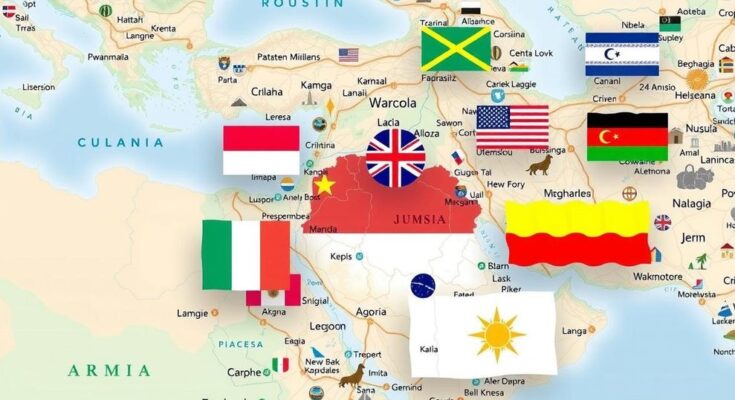Bashar al-Assad’s regime faces a critical juncture as a coalition of Syrian rebels sees an opportunity for change amidst the backdrop of diminished support from Russia and Iran. The evolving dynamics of power raise questions on governance, the role of external players, and the potential for renewed instability in the region as various factions vie for control.
The Assad regime’s hold on Syria has been bolstered by Russian and Iranian support, notably from Hezbollah. However, as geopolitical distractions arise, especially from Russia’s actions in Ukraine and Hezbollah’s engagements with Israel, a coalition of Syrian rebel factions sees a chance to displace Assad. The end of Assad’s grip, marked by heavy casualties among Syrians, raises critical questions about the ability of these diverse rebel groups to govern and foster cooperation amidst Syria’s intricate sectarian landscape.
Washington remains vigilant regarding Syria’s evolution, having stationed around 2,000 troops to combat ISIS. U.S. Secretary of State Antony Blinken emphasized that future governance should be inclusive and representative, ensuring essential services, human rights, and security against terrorist threats. However, despite hopes for peace, longstanding sectarian divisions present significant challenges for the nation.
At the forefront of the rebels is Ahmed al-Shara, leader of Hayat Tahrir al-Sham (HTS), a group with historic ties to al-Qaeda and ISIS. While seeking to present a moderate image, al-Shara’s past raises suspicions about his true intentions. The U.S. has made it clear that the Syrian government’s efficacy will be judged by actions rather than public rhetoric. Many foreign assets are currently frozen, and al-Shara’s interest in lifting sanctions is apparent, emphasizing a need for international legitimacy.
Turkey’s role is pivotal as it backs HTS, leading to concerns regarding Turkey’s attempts to expand its influence through this group. Additionally, Jordan is apprehensive about potential extremism trickling across its border, threatening stability in a strategic region reliant on U.S. and Israeli support.
Israel remains active in Syria, conducting airstrikes to prevent terrorist groups from utilizing strategically significant sites. A sense of déjà vu pervades Israeli concerns while navigating these developments, echoing memories of past geopolitical upheavals. Additionally, the Druze community, fearing encroaching Islamism, contemplates aligning closer with Israel.
Amidst this turmoil, the collapse of Iran’s investment in Syria, previously a vital arms conduit for Hezbollah, marks a significant setback for Tehran’s regional ambitions, illustrating the fragility of Iran’s influence. As rebel factions and their allegiances evolve, the potential for these groups to pose direct risks to Israel remains a focal security concern.
The ramifications of Assad’s downfall ripple through regional politics, urging countries like Saudi Arabia and the UAE to reassess their strategies. The absence of a unified power center, such as Egypt’s military post-Mubarak, complicates the path forward for Syria’s internal stability amid competing interests across the Middle East.
The Syrian civil war has persisted for over a decade, deeply affecting the region’s dynamics and international relations. Bashar al-Assad’s regime faced severe opposition fueled by diverse sectarian grievances among Syria’s population, exacerbated by external influences from countries like Russia and Iran. As the situation evolves following the apparent weakening of Assad’s position, the future governance and stability of Syria become critical focal points for regional players, including the United States, Israel, Jordan, and Turkey. Each of these nations has vested interests in ensuring that any emerging government is stable, inclusive, and does not harbor extremist threats.
As the conflict in Syria reaches a pivotal moment, the implications of Assad’s weakened regime extend beyond its borders, influencing regional stability and international relations. The diverse array of rebel groups will need to navigate complex sectarian divides to establish a functional government that respects human rights and maintains peace. External powers, particularly the U.S., Israel, and Turkey, will closely observe these developments to protect their strategic interests from potential threats arising from a fractured Syria.
Original Source: www.ajc.org



